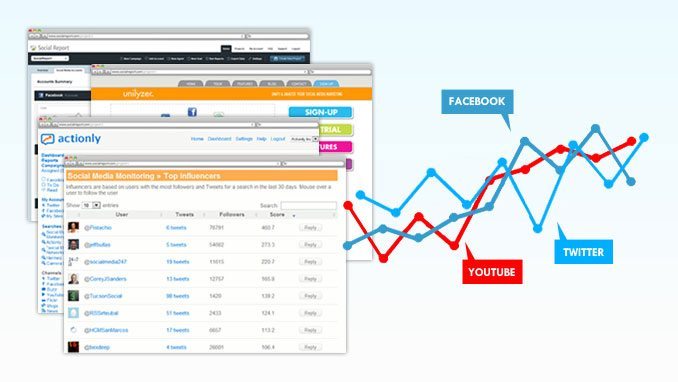Measuring the value of social media tactics (aka social media ROI) relative to businesses goals proves to be a challenge. From lack of access to inaccurate data, to myriad systems that have more data than we need and not what we truly need, measuring the value of social media continues to be a difficult task. Difficult, yet not impossible to execute effectively.
The reason there’s a problem with assigning value to social aggregates is because the upper funnel impact is hard to capture and understand; social data silos are hard to aggregate and compare. No single system aggregates various activities across social silo; and off-site engagement is hard to identify and measure. There are ambiguities of language and when conversations occur offsite it can be hard to be sure the keywords are relevant to your tactic.
Google Analytics wants to bring together actions on-site and actions off-site because that’s what social reports is geared toward.
The tools are meant to understand social media from a value perspective. So how should you evaluate social media results?
Evaluate referral sources, paying particular attention to referrals from social media
Step a: Look at referral traffic share. In your Google Analytics dashboard go to “Traffic Sources / Overview”.
Step b: Look at the social traffic share of referral traffic. Within the same “Traffic Sources” section, click on “Sources / Referrals”.
Step c: You can add goals and campaigns to track the full progression from visit to conversion.
Google is offering an open standard to let other data collectors to import into a hub called the Social data hub. Integrating all the data into Google Analytics allows for easier comparisons of data.
Social Media Conversions
A high conversation rate requires a deeper understanding of who your audience is, what your brand attributes are, what you are good at, what value you can add to your followers and the ecosystem you participate in.
Last interaction social conversion:
When a link posted on a social media network – such as Facebook, Twitter or Pinterest – brings a visitor to your website and results in a converted sale at the time of that visit, Google Analytics classifies this visit as a last interaction social conversion.
Assisted Social Conversion:
If the referral brings a visitor to the site who doesn’t produce a sales conversion at that time, but later returns and converts a sale, this is classified as an assisted social conversion, since the referral through social media brought the traffic to the website but, presumably, other factors convinced the visitor to commit to the sale. In Google Analytics, this information is presented in an “Overview Report” that displays the total conversion results for all of your social media platforms. You can also view statistics for each separate social media entity. The value of social media is then presented to the user in different ways, including as total sales and total conversions, among others.
Google Analytic’s social conversions report shows the value of each conversion and allows users to drill down into Assisted vs. Last Interaction Conversions for comparison. It shows Assisted Conversions, Assisted Conversion Value, Last Interaction Conversion, Last Interaction Conversion Value, and Assisted/Last Interaction Conversions, as shown above.
Be aware that report answers the question: What is the value of this specific network? Google reminds users: “Remember that you need to define goals and goal values in order to see data in this report, so tailor it to the things that matter to your business. Networks with a higher assisted/last interaction conversions ratio provide greater assisted conversions.”
The Social section in Google Analytics breaks down into sections/reports for an Overview, Sources, Pages, Conversions, Social Plugins, and Social Visitors Flow. Currently, they are tracking over 400 networks from around the world on the Visitor Flow side.
Some of the networks Google is tracking for these reports include Twitter, Facebook, StumbleUpon, Reddit, LinkedIn, and Quora, to name just a few.
Benefit from Google Analytics’ Social Reports
Through its new social media metrics, Google Analytics allows businesses to better understand the value of social media in regards to your business’s current sales and long-term goals. These new “Social Reports” can also help you optimize your social media practices, including how you allocate your resources to each platform as well as how your company approaches user engagement and building consumer trust.
Moreover, you need to customize your business’s Google, acquiring the most accurate data, as well as information on boosting social media efficiency over time.




